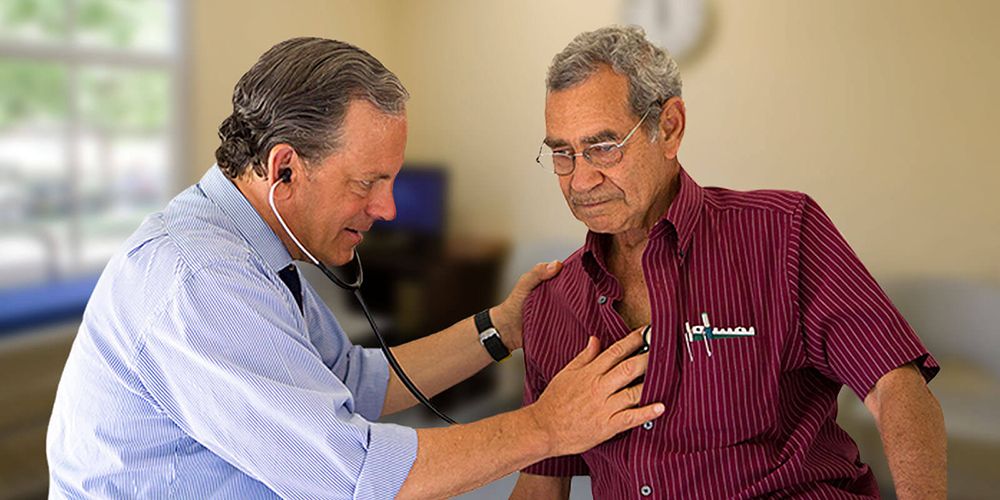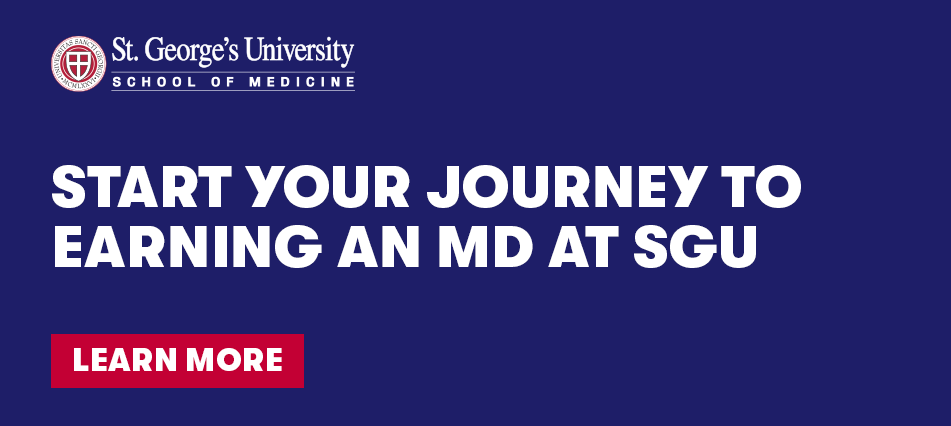If you’ve been thinking about becoming a doctor later in life, you’re not alone. More people from diverse professional backgrounds are taking the leap and making the change to a career in medicine.
Whether you’re coming from finance, education, engineering, or any other field, starting medical school as a non-traditional student is more common—and more achievable—than ever before.
Today’s MD programs, including those at St. George’s University (SGU), welcome career changers who bring real-world experience, fresh perspectives, and a strong sense of purpose to the field of medicine.
Read on to discover how you can make a successful transition to medical school—no matter where you’re starting from.
Is it too late to be a doctor? Not according to today’s medical students
According to the Association of American Medical Colleges (AAMC), the median age of students starting medical school in 2024 was 23. More than 16 percent were over 25.
This number can vary depending on the institution. For example, SGU’s School of Medicine class that enrolled in the 2024-25 academic year had a median age of 24. About nine percent of the class was over the age of 30 with some even beginning in their 50s and 60s.
MDs share their motivations for becoming a doctor later in life
Every doctor has a story—a personal reason that sparked their calling to practice medicine. For some, that calling comes a little later. Whether you’re in your late 20s, 30s, or beyond, what matters most is the passion and purpose driving you forward.
Hear from several physicians who began their medical journey after pursuing other paths. Their stories prove that it’s never too late to follow your dream of becoming a doctor and that your unique journey can be a powerful asset in the field of medicine.
To address unmet healthcare needs
Many physicians discover their calling in childhood but not everyone follows a straight path to medicine.
Before becoming a doctor, Margaret Russell, MD ’05, a graduate of SGU School of Medicine, spent more than 20 years as a teacher. Everything changed when a neighbor’s young child died from pneumonia in their rural community, where access to healthcare was limited.
That moment sparked something in her. “I thought to myself, ‘I am going to fix this situation. I am going to be a doctor in a rural town that needs me,’” she recalls.
Determined to make a difference, Dr. Russell enrolled at SGU. She credits the diverse experiences she encountered as a student at SGU with preparing her for rural medicine. Along with learning the medical essentials, she also strengthened her people skills, including an intuitive sense for understanding patients’ needs.
“I’ve been told I don’t miss much in terms of my evaluation of a patient,” she says. Today, Dr. Russell is a family medicine physician in Yakima, WA.
Finding a career that’s fulfilling
Some late-in-life MDs found their calling after experiencing medical care as a patient, such as the case with SGU grad Benjamin Khan, MD ’20.
Dr. Khan is a dermatologist in Georgia but before that he had a successful career as a television and film producer even earning a New York Emmy Award. With wear and tear from the job, however, he discovered that he had torn his labrum, an injury that required surgery. His hospital stay reinforced a feeling that he had been having of late—that he wanted something more.
“I felt vulnerable. I had never really hurt myself before, and it was a very difficult recovery,” he says. “My doctor was very integral in making a real difference in my life. He explained everything to me and became involved in my life. So, I asked if could shadow him one day to see what it was like.”
When he did, it changed the course of Dr. Kahn’s life. He was struck by the doctor’s professionalism, interaction with patients, and impact on their lives.
“It lit a fire in my belly,” he adds. “In TV, there’s an authenticity to everything, but there’s also an element of fabrication done behind the camera. But when I was shadowing him, I remember thinking ‘this is real.’ I just felt like I wanted to make more of a difference in people’s lives.”
At age 30, he applied to and enrolled at SGU. It took time for him to find a rhythm, but with the help of the University’s student support services, he developed strong study skills and test-taking habits.
“It wasn’t easy; I really had to work for it,” Dr. Kahn says. “In the end, I just feel so blessed to have been given the opportunity to become a doctor, and the confidence and the tools that I need to succeed.”
Building towards your dream
Dustin Blodgett, MD ’19, always dreamed of becoming a doctor, but his path to medicine was far from traditional. After a semester in college, he enlisted in the U.S. Air Force, serving as a pararescue man with the Special Forces. His unit was responsible for crossing enemy lines and transporting injured soldiers back to safety. He deployed to several countries, including Iraq and Afghanistan, over a six-year period.
“I was a bit older than your typical medical school student,” Dr. Blodgett says. “Medicine was always my ultimate goal from my first-grade career fair. It just took me a little bit longer to get there.”
Soon after being named Airman of the Year, Dr. Blodgett was diagnosed with Stage 3 melanoma, a life-altering shock that forced him and his wife to return to the US for emergency surgery. Over the next year, he underwent multiple operations, chemotherapy, and biotherapy, enduring intense side effects while also completing his undergraduate degree. By the end of that year, Dr. Blodgett had beaten cancer, earned his bachelor’s degree, and set his sights on medical school.
“I’d gotten into US medical schools. But it was a very easy decision to go to St. George’s University,” he says. “I wanted to see the world. And having lived abroad, it wasn’t shocking at all to live in a foreign country.”
Today, Dr. Blodgett is a psychiatrist specializing in child and adolescent psychiatry in Salt Lake City, UT.
It’s not too late to be a doctor
Look no further than St. George’s University School of Medicine for evidence of success among career-changers and other non-traditional students. SGU is abundant in resources to thrive with a campus designed to support student success.
New Year, New Career—and a scholarship to match
With the New Year, New Career Scholarship at St. George’s University, you can start your MD journey in January 2026 with tuition support starting at $65,000 and the backing of a community committed to your success.
This article was updated from February 2023 with the most recent facts and figures available.



